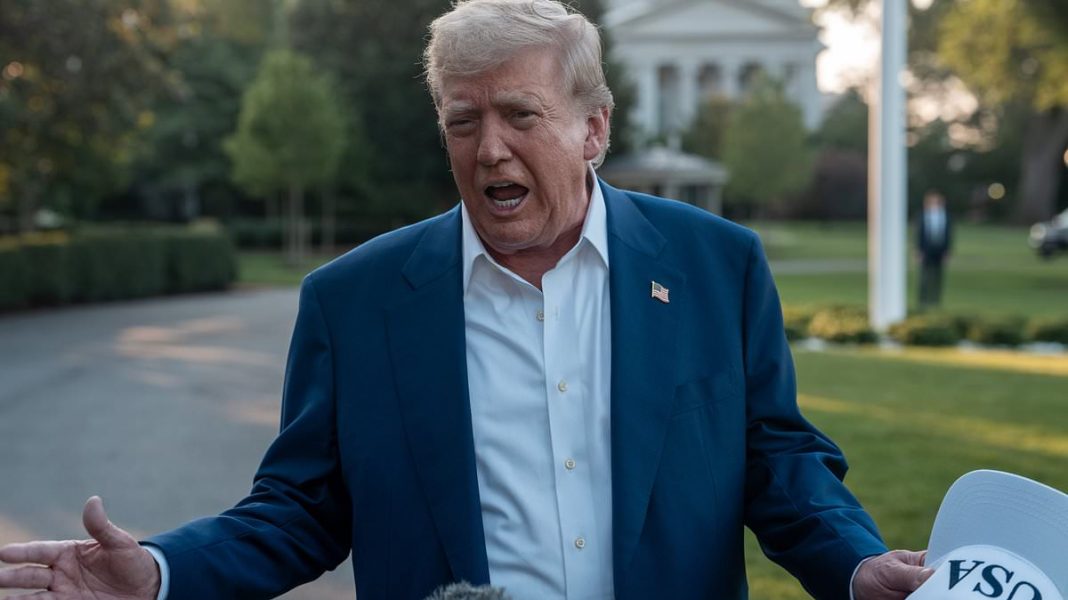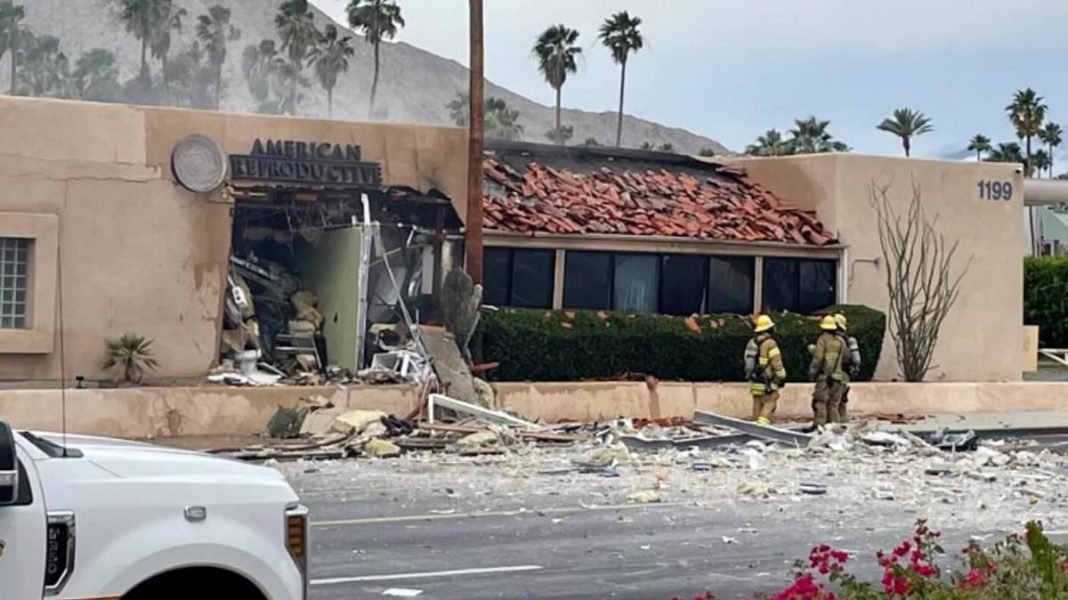Even by the volatile standards of the Middle East, this was a ceasefire written in water.
In fact, it took just over an hour from President Trump announcing the truce had come into effect in the early hours of yesterday morning for Israel to accuse Iran of violating it.
According to the IDF, a missile launched from Iran was identified and shot down shortly before 8.30am BST, with no damage reported. Regardless, Defence Minister Israel Katz vowed to ‘respond forcefully… with intense strikes against regime targets in the heart of Tehran’. (For its part, the Islamic Republic denied breaking the truce.)
Amid the fog of war, one thing remains quite clear: in spite of increasingly furious calls for peace from the world’s most powerful man, Israel and Iran want to fight.
‘You ceasefire if you want to,’ the Middle East seems to be telling Trump. ‘The locals are not for ceasing fire.’
So what happens next?
Trump is not the first US President to seek peace in the Middle East, and he will not, I suspect, be the last to learn that brokering a messy and hasty ‘deal’ is a far cry from achieving a genuine or lasting settlement.
The question now – and one upon which millions of lives may rest – is whether Israel and Iran are willing to defy the President, whose patience is wearing thin.
‘ISRAEL. DO NOT DROP THOSE BOMBS,’ he roared on his Truth Social platform yesterday morning: ‘IF YOU DO, IT IS A MAJOR VIOLATION. BRING YOUR PILOTS HOME, NOW!’
As he furiously told reporters yesterday, in footage that became a viral clip for the ages: ‘We basically have two countries that have been fighting so long and so hard that they don’t know what the f*** they’re doing.’
This presidential temper, more than anything else, seems set to determine events in the days to come. And to be clear Washington’s fury weighs more heavily on Tel Aviv than it does on Tehran. The Jewish State – for all its tub-thumping bravado – relies on Uncle Sam for weapons, missile technology and financial aid. If Trump reduces the flow of arms, Israel would be struggling for firepower in a matter of weeks.
For now, such a step seems unlikely. However, Israeli cabinet officials will be all too aware that if they push Trump too far, he could easily withdraw support for Benjamin Netanyahu personally. As with his predecessor, Joe Biden, there have been multiple reports that President Trump is secretly fed up with the Israeli Prime Minister, a man who faces credible corruption charges at home and who is wanted for war crimes, however spurious, by the International Criminal Court.
For all the Israeli hawks’ cries of ‘regime change’ in Iran, a return to fighting might, ironically, make it more likely that Trump seeks to topple Netanyahu than that the Iranian people rise up and depose the Ayatollah.
Why? Well, the reality is that Trump, for a host of domestic and international reasons, desperately wants peace in the Middle East. And if Netanyahu isn’t willing or able to provide it, Trump has the authority and influence to find someone who can.
Don’t forget, this is a US President who just days ago risked the lives of US troops by ordering an unprecedented ‘bunker-busting’ bombing campaign against Iranian nuclear sites. Trump no doubt feels he has played his part for Israel. And his quid pro quo would have been crystal clear: ‘We’ll help you strike Iran’s nuclear facilities – but then the fighting stops.’
Back in the US heartland, there are myriad voices in Trump’s Republican Party and elsewhere for whom war in the Middle East doesn’t fit the ‘America First’ agenda. For one thing, the scars from Iraq and Afghanistan are still raw. Middle Eastern wars lead to oil shocks, and oil shocks lead to high petrol prices for Americans. Having castigated Biden for letting inflation soar, Trump cannot allow the same thing to happen on his watch.
Trump also fears that if pushed any further, Iran may block the strategically vital Straits of Hormuz – its rubber-stamp parliament has already approved a motion to close the major shipping route – which would increase oil prices further for US consumers.
More ominously, Trump knows that a prolonged war between Israel and Iran could drag Russia and China – directly or indirectly – into siding with their fellow autocrats, leaving Washington with little choice but to return to the fray themselves.
For all these reasons and others, Trump is demanding peace. Yet, at the same time, the hardliners in Benjamin Netanyahu’s cabinet are still baying for blood – and the mullahs are hardly ready to turn their spears into ploughshares.
Yesterday morning, after the IDF reported of a single errant Iranian missile, Israeli finance minister Bezalel Smotrich – who once described himself as a ‘fascist homophobe’ – vowed that ‘Tehran will shake,’ as he called for the immediate resumption of hostilities. Like many of the hard-Right in Israel, he feels there is unfinished business.
For their part, the Iranian foreign minister stressed: ‘Israel launched war on Iran, not the other way around. As of now, there is NO “agreement” on any ceasefire or cessation of military operations.’ And this is no idle threat.
Yes, Israel has destroyed a number of Iranian missile launchers and military stockpiles, as well as assassinating several senior military commanders and nuclear scientists.
However, the mullahs are far from defeated on the ground. And there will be those in Israel, too, who believe there should be no peace until Iran is fully disarmed and incapable of striking Jewish cities at all. For as long as Iran remains a threat, no Israeli will ever be truly safe – or so this argument goes.
And then there’s the question of the 408kg of partially enriched uranium which Iran is understood to have smuggled out of its Fordow nuclear facility before the American bombs rained down last weekend. Many in Israel will feel that the work to remove Iran’s nuclear threat is far from over, even if their programme has been handicapped for now.
Inflicting total defeat on Iran, however, is out of Israel’s grasp. They cannot launch a ground invasion in a country of almost 100million people without US assistance – and the chances of that happening are nil. At the same time, chastened by America’s recent misadventures in Iraq and Afghanistan, Trump appears uninterested in toppling the Iranian regime, telling reporters on Air Force One yesterday: ‘Regime change takes chaos, and ideally we don’t want to see so much chaos [in Iran].’
All of which makes this the most delicate of situations.
For now, the ceasefire appears to be just about holding. Netanyahu has been subdued by Trump while the Islamic Republic has no doubt welcomed the chance to regroup – and rearm.
In other words, this is a peace of sorts, but history may well look back on this moment as the calm before a new and devastating storm.
Mark Almond is director of the Crisis Research Institute, Oxford






